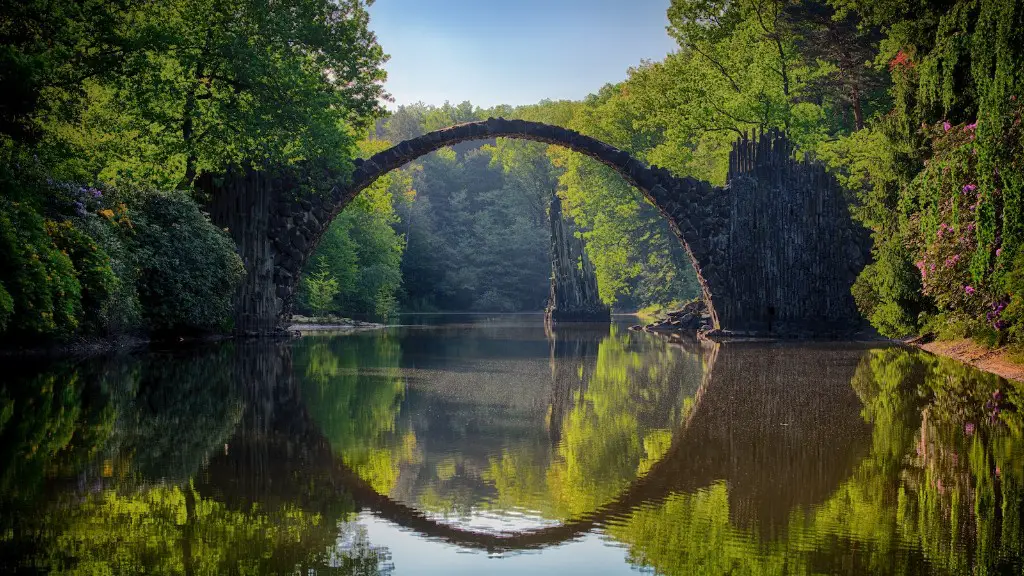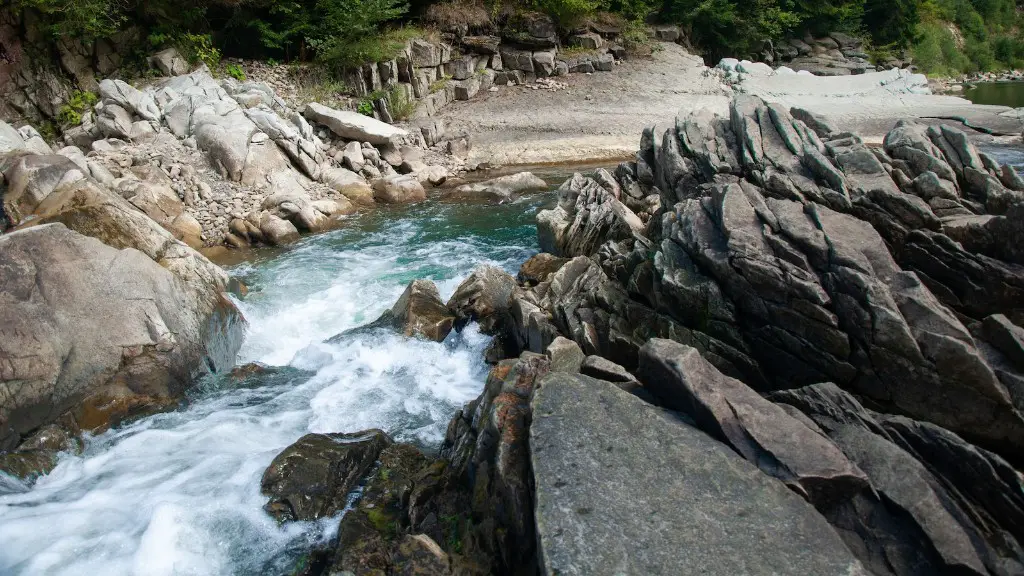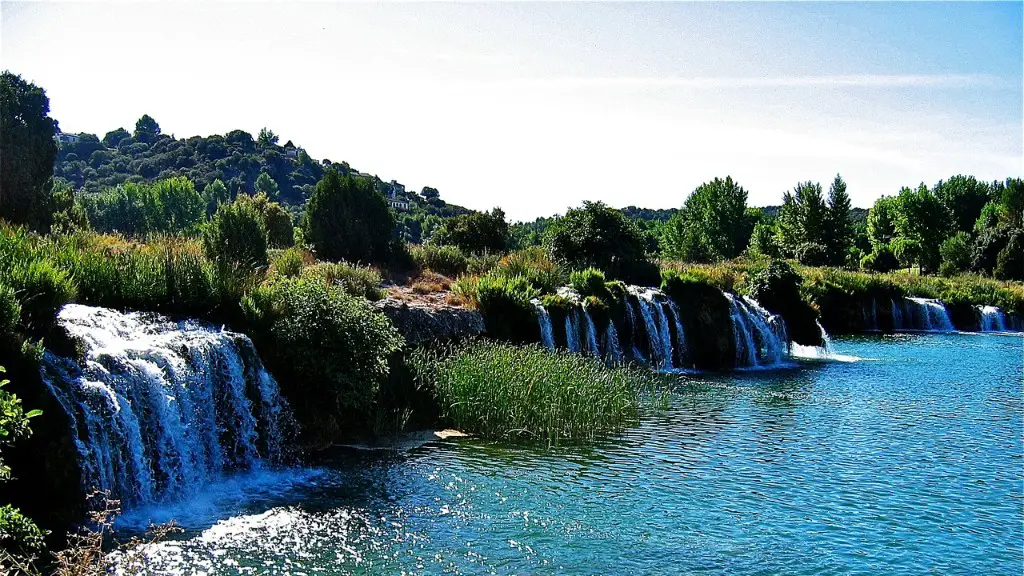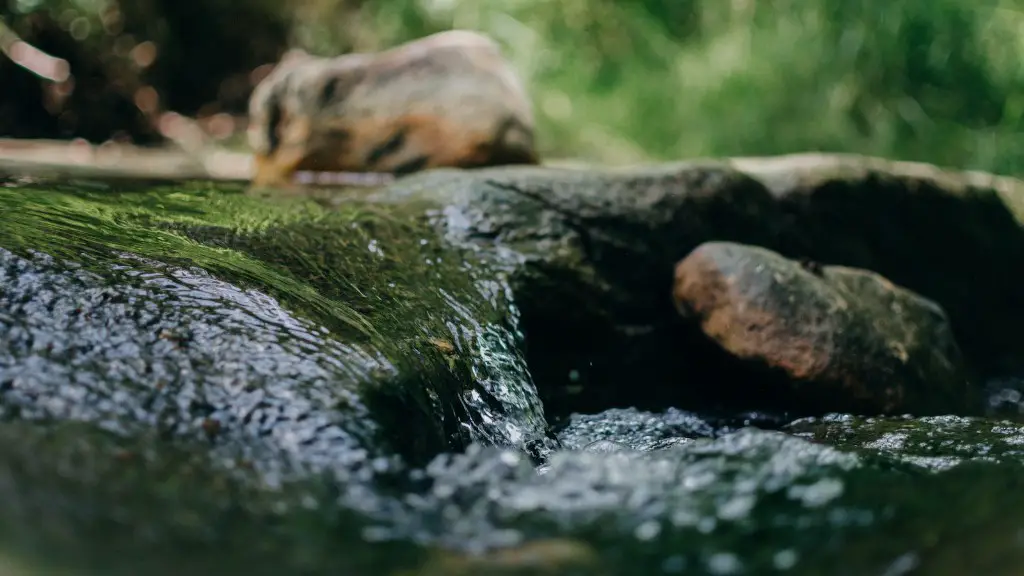Mississippi is one of the most famous and revered rivers in the world. It runs through the most fertile regions of the United States, supporting countless communities, cultures and economic activities. However, this mighty river faces a serious threat – the danger of drying up.
Climate change and overuse of the river’s resources are the main reasons why this possibility is becoming a reality. The drastic increase of temperatures due to global warming has started to disrupt the river’s ability to act as a buffer against the natural tendency for rivers to decrease in size. Further, the man-made extraction of groundwater and over-pumping of aquifers are reducing the water flow as groundwater returns to the river.
According to hydrologists, the decrease in river discharge will cause the water level to fall, and ultimately lead to a sharp decrease in the river’s size. This phenomenon is already happening in the mid-western United States, where the area around the Mississippi and its tributaries are facing unprecedented droughts due to a lack of precipitation.
To make matters worse, engineers are manipulating the flow of the river. As more waterways are being constructed, Mississippi’s water levels are forced to change, causing severe fluctuations. This also affects the livelihoods of local communities, as the river’s ecosystem is drastically altered.
Experts are warning that if steps are not taken to counter these trends, Mississippi may become little more than a trickle. The future of this river is in the hands of policymakers and the global community, and if action is not taken the effects could be disastrous.
Industrial Pollution
Industrial pollution is another factor contributing to the drying up of the Mississippi river. Large-scale industries extract massive amounts of water from the river to be used in their operations, depleting the river water reserves even further. What’s more, they pollute the rivers with toxic chemicals which are extremely harmful, not only to the aquatic life but also to the people who rely on the river for their livelihoods.
Agricultural activities such as agriculture also put an immense strain on the river, leading to over-fertilization of the soil and an increased demand for fertilizers, insecticides, and other chemicals. These chemicals eventually make their way into the river and flow downstream, endangering not just the locals but everyone along the Mississippi.
The pollution of the Mississippi river has become an issue of major concern for scientists and conservationists alike. The magnitude of the damage done to the river by human activities is alarming, andunless drastic measures are taken, the effects could be irreversible.
Urban Development
Urban development is another leading cause that contributes to the drying up of the Mississippi river. The Mississippi river used to be a source of sustenance and an efficient mode of transportation to isolated communities. However, with the proliferation of cities, massive portions of the Mississippi have been channeled away and replaced with roads and buildings. This urbanization has disrupted the river’s flow through cutting off sections of the river, thus restricting its flow and leading to a decrease in water reserve.
Climate change and overuse of the river’s resources are the main drivers of the drying up process. But urban development is equally responsible, as it has caused the river to become choked with artificial structures, reducing the amount of water reaching downstream areas.
The negative impacts of urban development on the Mississippi river are undeniable. The uncontainable nature of the river has been disrupted, and the community projects that depend on its resources are disappearing. To make matters worse, the growing demand for housing and infrastructure means that urban sprawl continues to expand, leading to fears that much of the river will eventually be lost to urban Development.
Climate Change
Climate change is yet another leading cause of the drying up of the Mississippi river. After decades of seemingly unstoppable global warming, the extreme changes in temperature are wreaking havoc on the environment, and the Mississippi is no exception. Researchers have linked climate change to more frequent and intense droughts, further drying out the river and making it more vulnerable to pressures from humans.
Climate change is also causing an increase in extreme weather events. Floods, storms, and hurricanes are pushing more water into the river, but also reduce its quality and level. The water that does remain is becoming saltier and less drinkable, reducing its availability for agricultural and domestic use.
Climate change has created an uncertain future for the Mississippi river and those who depend on it for their livelihoods. Its fragile ecosystem is threatened by the very human actions that caused it, and the fate of this essential resource hangs in the balance. Unless the global community takes drastic measures to combat climate change, the Mississippi river may eventually become but a shadow of its celebrated and magnificent self.
Agriculture
Agriculture is another factor placing strain on the Mississippi river. The growing demand for food means that more land is needed, leading to the draining of wetlands, rivers, and other fragile ecosystems along the river banks. This decreases the natural resources available to the river, further reducing the water available for use by humans.
The overuse of fertilizer and chemicals such as pesticides and insecticides also negatively impacts the Mississippi river. These pollutants are flushed into the river, leading to an increase in toxins and a decrease in water quality. This reduces the river’s ability to support fish, plants, and other aquatic life, thus damaging the river’s ecosystem even further.
When combined with other factors such as climate change and urban development, agriculture further decreases the resources available to the Mississippi and other rivers. Unless drastic measures are taken to counter this trend, the Mississippi may eventually become unfishable and unable to support the livelihoods of the communities that rely on it.
Deforestation
Deforestation is also playing a role in the drying up of the Mississippi river. The loss of trees along the river banks leads to a decrease in soil quality, as well as an increase in water runoff. This leads to a decrease in water repositories, and a subsequent decrease in the river’s water reserves.
More importantly, the loss of forests affects the river’s ability to maintain its temperature and precipitation levels. Trees act as a buffer, providing shade and protection from the elements. Without them, the river is forced to face the direct rays of the sun and is subjected to extreme weather conditions, leading to an overall decrease in the river’s quality and viability.
The future of this river is in our hands. If the global community wishes to preserve the river, we must make drastic changes to our activities and practices, as well as controlling deforestation and urbanization near the Mississippi. Only then will this legendary river be able to continue to provide its vital resources to the people of the United States.




